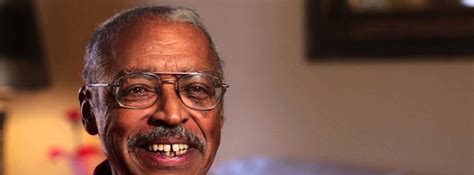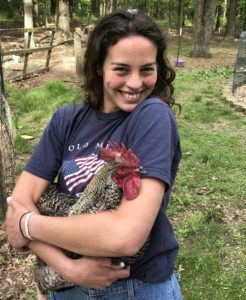
A Life-Changing Education: Lloyd Bond’s Career in Academia
By Emma Shea
Bond was the youngest of seven children growing up on the south side of Chicago. According to Bond, he spent the better part of his childhood in a vast, hopelessly impoverished complex. He attended George Washington Carver High School and graduated as salutatorian. Bond was accepted with aid to every Ivy League school to which he applied for undergraduate studies and planned to attend Stanford. About a week before classes started in the fall of 1960, Bond got a call from Hillsdale about a scholarship that would cover everything from books to tuition. He promptly changed his mind and decided to attend Hillsdale instead.
“I have never regretted turning down Stanford and Harvard for Hillsdale,” Bond states. “My four years at Hillsdale were some of the best of my entire life. I had some fabulous friends and professors.”
Bond attests that the “sheer brilliance” of his Hillsdale professors changed him, or rather, they caused him to change himself. Those that had a major impact on him were Professor Norman Welling, Wray Lundquist, Windsor H. Roberts, Charlie Greenshields, and Edwin B. Dike.
He reflects on his time as a lead tenor under choir director and professor, Harold Brown, and how the choir toured the Midwest. Bond remembers his dear chess-playing friends that would gather in Dickerson Student Union, which was located on the northeastern corner of the Quad back in the 1960s. Bond says his friends would challenge professors to a game of chess, and he “was the only one that could ever beat them.”
Bond is extremely grateful for the education and experiences he received at his alma mater. In 1964, his senior year at Hillsdale, in a letter to the editor of the Collegian, he wrote “I have come to wonder at the fact that I am still the same person,” said Bond. “I remember that I was terrified at the thought of spending four years in a small, hostile town. My fears were, of course, unfounded. The College, and to a lesser extent, the town accepted me as much as they then could. What has plagued me since, however, is the realization that there was no basis whatsoever for anyone’s impudent assumption that they must accept me. I found, in fact, that much was gained when I accepted myself. The four years are gone now and with them the transcendent memories that neither time nor a hard life can erase.”
Bond is eternally grateful for the education and experiences he received at his alma mater and states, “I have finally come to the conclusion that Hillsdale, and small colleges like it, will meet the challenge of the future, no matter how huge our state universities become. In this technologically oriented age, the belief that a good education consists of primarily learning to get along with one’s fellows is probably an obsolete one, but, nevertheless, one that I still remember. We humans, if we are to survive, cannot help but be optimistic about our destiny. And this optimism must necessarily cover everything, from race relations to Khrushchev.”
After graduating from Hillsdale in 1964 with his bachelor’s degree in psychology, Bond accepted a position at General Motors. He worked in labor relations, public relations, and personnel relations—learning about industry and business. He planned on staying with the company, but after tiring of the “corporate rat race,” he applied to graduate school to study clinical psychology. Bond regrets none of his eight years working for GM, and said it put him at an advantage in grad school. In the application process, he was again accepted by every Ivy League school but chose Johns Hopkins because of its small but eminent faculty.
Bond initially pursued clinical psychology because he wanted to learn more about the origin and causes of stuttering, a speech impediment that he and an older brother struggled with their entire lives. But he later switched to Psychometrics, a mathematical subspecialty of psychology that deals with educational and psychological measurement.
He found his true passion in life when he accepted his first teaching job outside of graduate school in 1976 at the University of Pittsburgh. He taught there for 12 years and later taught at the University of North Carolina, Greensboro, from 1988-2002. From 2002-2008, Bond was a Senior Scholar at the Carnegie Foundation for the Advancement of Teaching and a visiting professor at Stanford. “I just fell in love with teaching and doing research,” he said.
Along with his many years in academia, he and a colleague also led a team of measurement specialists that performed groundbreaking technical work for the National Board for Professional Teaching Standards, which reinvigorated teaching standards across the country. Bond also received the esteemed AERA Presidential Citation for Contributions to Educational Measurement and was given the honor of having the Lloyd Bond Charter School in south Chicago named after him. With all of Bond’s great accomplishments, he says that the challenge of the future is up to each one of us here.
“We often hear that ‘the world was like this when I came into it; I can do nothing about it,’” said Bond. “There is no basis whatsoever for a person’s (especially a young person’s) belief that he must leave the world as it was when he first opened his eyes to it.”
Bond urges students to take their courses seriously, never missing an opportunity to learn more. “I never regretted that,” he said. “This might be the last time in your life to have true freedom to learn with only this one obligation of learning. Find something that you like, and hopefully, it will also be something that is useful and somebody will pay you for it. But if you want to be successful and enjoy this life, first of all, find something you like to do.”
Emma Shea, ’22, studies biology and religion. She is from Middleville, Michigan, but plans on somehow living in every state with National Parks and herds of sheep/ cows. When she is not running late, she is scheming up road trips with friends or how to get into events for free.
Published in June 2021
